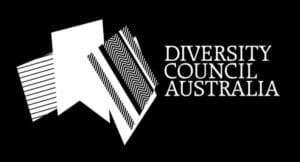RTO Policies & Procedures
RTO CODE: 4049
ENROLMENT AND ADMISSION
UNIQUE STUDENT IDENTIFIER
DEFERRAL AND WITHDRAWAL
FEES AND CHARGE
STUDENT HANDLING INFORMATION
STUDENT SUPPORT AND SERVICES
RECORDS MANAGEMENT
QUALITY MANAGEMENT – POLICY AND PROCEDURE
COMPLAINTS AND APPEALS
CREDIT TRANSFER
PRIVACY NOTICE AND VET DATA STATEMENT DECLARATION
GLOSSARY
Training Package
Training Package includes nationally endorsed and recognised sets of integrated components for training and assessment for a specific industry, industry sector or enterprise that can be used for developing and recognising people’s competencies.
Accredited qualifications
Accredited qualifications refer to nationally recognised courses that led to a qualification outcome not specified in a national training package. For example, Accountancy Degree may be accredited by the Institute of Chartered Accountants or Association of Chartered Certified Accountants (ACCA).
Nationally recognised qualification
A nationally recognised (accredited) qualification refer to coursework that refers to the completion of a course from a Training Package for the National Register of Training (NRT) developed through the National Training System.
Accredited courses
Accredited courses have been assessed by a VET regulator (ASQA) as compliant with the Standards for VET Accredited courses 2012. For more information see <https://www.legislation.gov.au/Details/F2013L00177>.
Training package skill sets
Training package skill sets are defined as single units of competency, or combinations of units of competency from an endorsed training package, which links to a licensing or regulatory requirement, or a defined industry need.
Units of competency
Units of competency s define the skills and knowledge to operate effectively in a workplace context. They are the smallest units that can be assessed and recognised. Where a student enrols in a unit, they are reported as ‘subjects not delivered as part of a nationally recognised program’. However, the student achieves a ‘Statement of Attainment.
Scope of registration
Defines the services, training package qualifications or competencies that a registered training organisation (RTO) is approved to deliver.
The ARA Retail Institute (ID NUMBER: 4049) is the leading national body providing for the education, consulting and professional development needs of the Australian retail industry. The ARA Retail Institute specialises in consulting and education on a broad range of topics, including: Retail Buying, Financials, Visual Merchandising, Marketing, Operations, and Sales and Service Strategy. The ARA Retail Institute houses a suite of both accredited and non accredited training solutions; from the Diploma of Retail Management to customized in-house training programs. This suite provides a diverse and flexible range of education products to suit industry needs.






















